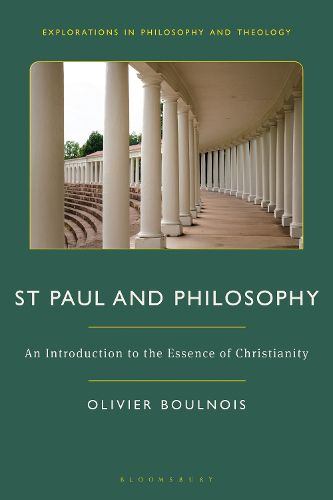Readings Newsletter
Become a Readings Member to make your shopping experience even easier.
Sign in or sign up for free!
You’re not far away from qualifying for FREE standard shipping within Australia
You’ve qualified for FREE standard shipping within Australia
The cart is loading…






Olivier Boulnois investigates the relation between Paul, as apostle of Jesus Christ, and the philosophy at work in his letters. Boulnois lays bare the manner in which Paul adapts Greek thought to his own purposes. This sheds light on the work of an entire range of philosophers who have identified themselves with the Pauline effort to hold thinking open to the claims of Christian life and doctrine, from Augustine to Kierkegaard, as well as more recent figures who have engaged Paul from a greater distance, including Heidegger and Ricoeur. Boulnois also draws on modern and contemporary scholarship, and reveals his reservations about the turn to Paul appearing in European philosophy in the work of such thinkers as Agamben and Badiou. Successive chapters take up Paul's logic of the Cross; cosmology; approaches to being in the world, law, evil and good; messianism; salvation and history.
Originally delivered as a series of lectures at Cambridge and at the Institut Catholique de Paris, St Paul and Philosophy is at once a painstaking study of Paul's own thinking and an open exploration of its continued relevance for modern and contemporary reflection on Christian religion. This book is an important demonstration that theology and philosophy are at their best when brought into dialogue with one another around perennial questions and themes.
$9.00 standard shipping within Australia
FREE standard shipping within Australia for orders over $100.00
Express & International shipping calculated at checkout
Olivier Boulnois investigates the relation between Paul, as apostle of Jesus Christ, and the philosophy at work in his letters. Boulnois lays bare the manner in which Paul adapts Greek thought to his own purposes. This sheds light on the work of an entire range of philosophers who have identified themselves with the Pauline effort to hold thinking open to the claims of Christian life and doctrine, from Augustine to Kierkegaard, as well as more recent figures who have engaged Paul from a greater distance, including Heidegger and Ricoeur. Boulnois also draws on modern and contemporary scholarship, and reveals his reservations about the turn to Paul appearing in European philosophy in the work of such thinkers as Agamben and Badiou. Successive chapters take up Paul's logic of the Cross; cosmology; approaches to being in the world, law, evil and good; messianism; salvation and history.
Originally delivered as a series of lectures at Cambridge and at the Institut Catholique de Paris, St Paul and Philosophy is at once a painstaking study of Paul's own thinking and an open exploration of its continued relevance for modern and contemporary reflection on Christian religion. This book is an important demonstration that theology and philosophy are at their best when brought into dialogue with one another around perennial questions and themes.